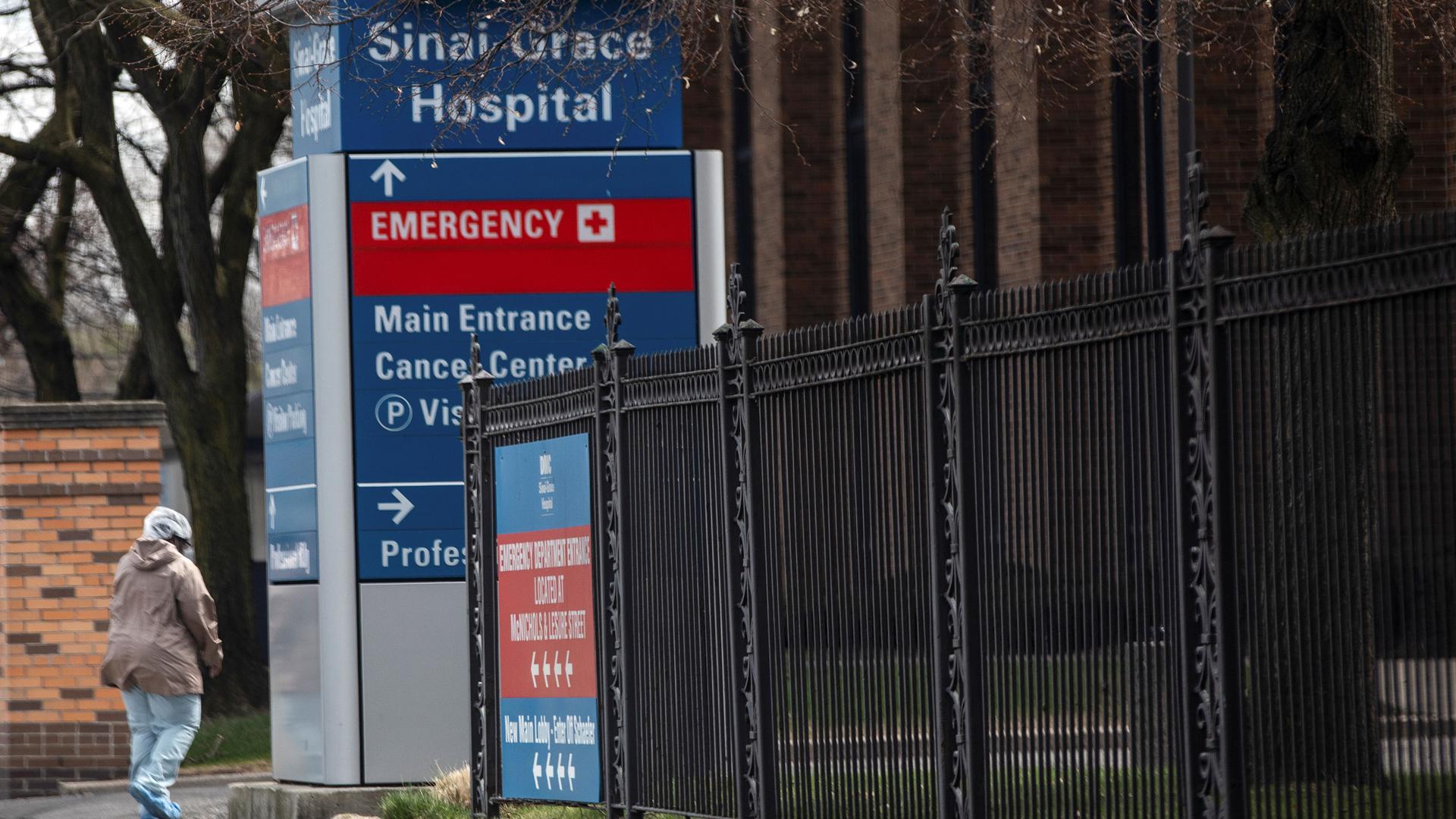Patients admitted to hospitals in Detroit, Michigan, are often cared for by Canadian nurses. Some 1,600 nurses in Ontario, Canada, cross the border every day to work in the US health care sector. And some nurses work in hospitals on both sides of the border.
But the pandemic could change that. As the number of novel coronavirus cases grows in Michigan, some officials in Ontario are calling for restrictions on where these nurses can work — telling them to essentially pick a side.
Michigan had more than 28,000 confirmed cases of COVID-19 and nearly 2,000 deaths as of Friday. Ontario, by contrast, had some 10,000 cases and 500 deaths.
COVID-19: The latest from The World
Crossing from Detroit, Michigan, to Windsor, Ontario, which lies just across the Detroit River, is a daily communte for some. “We practically are one community when you are looking at Windsor and Detroit. A significant number of people cross every day,” said Dr. Wajid Ahmed, the chief medical officer in Windsor-Essex County, Ontario. “Close to 6,000 people who cross the border and work in Michigan. Close to 1,600 are health care workers who are going there and working there.”
But Ahmed is concerned about transmitting the coronavirus across the border, and has called for stricter restrictions to reduce risk. “What we have seen recently is a significant increase in the number of cases [on the] Michigan side. And [on the] Ontario side, the increase was not as significant,” Ahmed said. “But when we are talking about health care workers, they don’t have any boundaries. They’re working there. They’re working here. So we did feel that there has to be a better measure to contain the virus as much as possible.”
Ahmed spoke with The World’s Marco Werman about the medical relationship between the US and Canada.
Related: How the US-Canada border closure will disrupt life in this Canada border town
Marco Werman: Would you say hospitals in Michigan are pretty dependent on nurses from Canada?
Dr. Wajid Ahmed: I would say so, because I know some of the hospitals, they have a significant proportion of their workforce that are from Canada and they need those workers to keep the operations going. And without these workers, they won’t be able to operate the way they normally do. And this is not even a normal time. So it would be very difficult for them to maintain operations.
Related: Racing to develop a drug to fight COVID-19
So what restrictions are being put on these nurses currently, and what restrictions do you think should be put in place?
What is happening in the Canadian side is, a health care worker needs to restrict their work to one facility and not work in multiple facilities. If you are coming back and you’re still working in Michigan, knowing that your risk is high, when you’re returning to Canada, the moment you enter Canada, you basically go into the self-isolation mode. So you’re coming straight to your home. You’re not going to any grocery store or doing any of the work that you need to do. And you are staying at home and not meeting anyone, and follow[ing] everything that you should. So we are hoping that these measures, if followed appropriately, they won’t be spreading it to our community.
So if you were in charge, doctor, would you make it so that nurses would just stop going to the US altogether?
If in my community, the needs are [that] I need those nurses, then probably, I would say, “Yes, we need those nurses right now because we have a shortage of nurses and we are critically low in nursing supplies.” And right now, that’s not the situation. So we feel that, yeah, we are basically just doing our part as neighbors. They need our support. Can we provide them with our support? Yes, we can. So might as well do it. And if that changes, then that’s a different conversation altogether. Right now, we haven’t seen that at this time.
Related: Mutual aid groups respond to coronavirus and climate change threats
So as you know, earlier this month, President Trump banned the export of N95 masks to Canada. And then Prime Minister Justin Trudeau say Canada would not issue any retaliatory measures in response. And he cited the nurses in Ontario as an example of how close the US and Canada are intertwined. Would restrictions on nurses suddenly change that and raise tensions, do you think?
I don’t think so. I think as Canadians, we do have a better understanding of how we how we should support not only ourselves, but a global fight against this COVID pandemic. And we will continue to do our part, continue to support our neighbors, continue to support the rest of the world as much as possible, up to our capacity. And I think that’s a great thing that being a Canadian means, and supporting others.
This interview has been edited and condensed for clarity.
